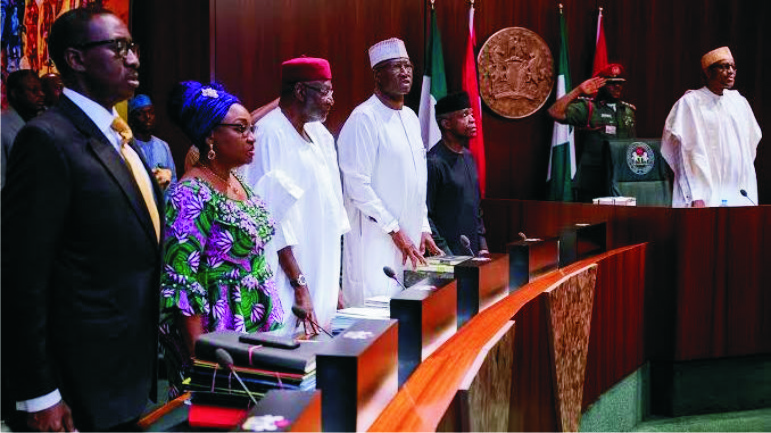Business
FEC Approves N10.07trn 2020 Budget Proposal …Raises VAT To 7.2%

The Federal Executive Council (FEC) last Wednesday approved N10.07trillion 2020 Budget proposal for onward transmission to the National Assembly for consideration and approval.
The Minister of Finance, Budget and National Planning, Hajiya Zainab Ahmed, made this known when she briefed State House correspondents on the outcome of the meeting of the Council which was presided over by President Muhammadu Buhari in Abuja on Wednesday.
She revealed that the Council approved the Medium Term Expenditure Framework and Fiscal Strategic Paper (MTEF/FSP) for 2020 to 2022, which would guide the implementation of the 2020 Budget.
The Minister said the next step was to present the document to the National Assembly for consideration.
“The expenditure for the year 2020 is in the total sum of N10.07 trillion. This is three per cent less than the approved expenditure in the 2019 budget that has been passed into law.
“The total expenditure includes statutory transfers, non-debt recurrent expenditure such as salaries and pensions and also the social intervention Programme,’’ she said.
According to her, the 2020 budget has a debt service estimated at N2.45 trillion and a sinking fund to retire maturing obligations issued to local contractors and other creditors in the sum of N296 billion.
“So there is a total sum of N3.43 trillion that is provided for personnel and pension cost inclusive of N218 billion for the top 19 government owned enterprises in the country.
“This represents an increase of N453 billion over the 2019 approved budgetary expenditure. This also implies a 40 per cent of this recurrent expenditure to the projected revenue.
“The budget deficit is projected at N2.15 trillion in the year 2020 and this is lower than what was approved in the 2019 budget which was N2.47 trillion.
“Let me state that these projections include draw downs on project tied loans and this represents 1.51 per cent of estimated gross domestic product (GDP). This is well below what is allowed by the Fiscal Responsibility Act of 2007 which is still put at three percent.
Transport
Automated Points Concession : FAAN Workers Gave 72hrs To Revise Decisions In PH

Transport
FAAN Announces Pick-Up Points for Go-Cashless Cards

Business
Fidelity Bank To Empower Women With Sustainable Entrepreneurship Skills, HAP2.0
-

 Politics4 days ago
Politics4 days agoSenate Urges Tinubu To Sack CAC Boss
-

 News4 days ago
News4 days agoAmend Constitution To Accommodate State Police, Tinubu Tells Senators
-

 News4 days ago
News4 days agoDisu Takes Over As New IGP …Declares Total War On Corruption, Impunity
-
Business4 days ago
Crisis Response: EU-project Delivers New Vet. Clinic To Katsina Govt.
-
Business4 days ago
President Tinubu Approves Extension Ban On Raw Shea Nut Export
-
Business4 days ago
President Tinubu Extends Raw Shea Nuts Export Ban To 2027
-
Business4 days ago
Fidelity Bank To Empower Women With Sustainable Entrepreneurship Skills, HAP2.0
-
Sports4 days ago
NDG: Rivers Coach Appeal To NDDC In Talent Discovery

